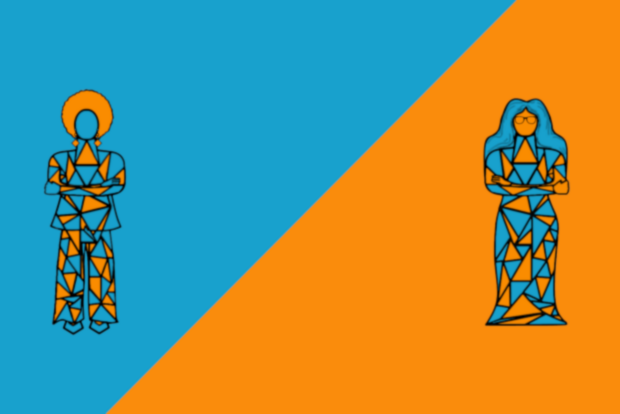Women Leaders Index: why gender parity in South Africa’s public service isn’t just a numbers game

South Africa is just 1.4 percentage points from reaching gender parity in the top ranks of its public service, a new report from Global Government Forum has found. But as Zukiswa Mqolomba, the recently appointed deputy chairperson for the country’s Public Service Commission explains, there is still a long way to go before women are considered equal
In Global Government Forum’s latest Women Leaders Index, South Africa is in joint second place in the G20 ranking, behind Canada and tying with Australia, with women accounting for 48.6% of the senior civil service in both countries. It has also made the biggest improvement of all G20 countries in the two years since the last Index, with representation of women having jumped 7.2 percentage points over the period.
You might think, being 1.4 percentage points from reaching gender parity in it highest grades, that South Africa’s public service has taken concrete and effective steps towards ensuring that women’s voices are heard around the decision-making table. But as Zukiswa Mqolomba, the recently appointed deputy chairperson of its Public Service Commission explains, the civil service – and the country – have a long way to go before women are considered equal.
Mqolomba points out that government departments have yet to achieve a target – set by the country’s first democratically elected government nearly 30 years ago – that at least half of the leaders in the public service are women.
The policy, which also applies to the private sector, was introduced in 1994 as part of the government’s strong gender-equality stance under Nelson Mandela.
Though purely aspirational – it was not set in law – it was a catalyst for improvement on representation of women in influential positions across society. But, though South Africa’s cabinet has been 50% female since 2019 for example, the public service hasn’t quite met the goal.
‘Nothing about women without women’
And according to Mqolomba, it isn’t just a numbers game; far from it. Yes, women make up nearly half of the top five grades of the country’s public service but those women, she says, do not enjoy the same influence and respect as their male counterparts.
“Representation is important. There’s a quote I think governments should live by – ‘nothing about women without women’. Women need to sit around the decision-making table and occupy space,” she says. “But there’s an issue around institutional culture. It’s patriarchal and chauvinistic and it threatens women being able to sustain careers in the public service.”

She explains that female senior officials are often undermined by their peers and their teams. “It’s double standards. They don’t enjoy as much of a voice [as men] and they aren’t allowed to lead as they see fit – if a woman is strong, she’s seen as a bully.”
Asked what she thinks needs to be done to change this, she says “by staring it in the face, calling it out and making a noise about it”.
Something else she thinks would make a big difference is the establishment of women’s networks, which is beginning to happen. Mqolomba says Yoliswa Makhasi, the director-general of the country’s Department of Public Service, recently launched a social network for female public servants across all provinces of the country through which they can share their experiences.
Male colleagues who support and promote women and equality also play a key role in the fight to achieve true gender parity in the public service. As a young woman (Mqolomba is in her 30s), she says she has had to work hard to establish herself as an authority and “a leader, leading leaders”. She explains: “Sometimes people don’t want to recognise my views as legitimate, because they come from someone who’s young, and who is seen as the radical voice.”
Read the full Women Leaders Index
However, she describes the support of her boss and chairperson of the Public Service Commission, Somadoda Fikeni, and other colleagues as her “saving grace”, representing a completely new and different experience for her in the Commission compared with previous roles.
“[Fikeni] recognises my scholastic contributions and my intellect, he supports my dynamism, and he supports my contribution towards rebuilding and repositioning this institution,” she says.
In terms of her own leadership style, Mqolomba says she intends to help “raise others up as I rise. I don’t want to be the only woman around a decision-making table. The more we are, the more voices we have, the more we can transform society”.
“And the micro reflects the macro,” she adds. “The cultural challenges faced by women in society replicate themselves in the public service because one is born of the other.”
The business case for gender equality
According to Mqolomba, the African National Congress (ANC), South Africa’s governing party, is committed to promoting women leaders because it recognises scientific research that finds that when a woman is empowered, they aren’t just empowered as individuals, they also help to empower communities and to empower society at large, leading to both social and economic benefits. “That’s the philosophy,” she says. “There’s a business case for empowering women over and above believing in equity.”
The country has a National Gender Policy Framework and a Ministry for Women, Children and People with Disabilities, through which the government deploys policies and mechanisms around, for example, tackling gender violence.
Departments must also have employment equity plans in place that are aligned with the country’s labour legislation. Nevertheless, Mqolomba cites research [Nhlapo & Vyas-Doorgapersad, 2016] which found that “empowerment of women is not happening in any significant or meaningful way in departments” and that apart from general policies and practices that affect all staff, “there are no specific programmes that recognise women as a separate interest group with specific interests and needs”, including programmes related to training, recruitment, “and addressing the practical needs of women”.
While this needs to be addressed, Mqolomba says that – with women accounting for 48.6% of the top grades of the public service, half of Cabinet ministers and around 45% of those in parliament (up from 2.7% when South Africa got independence in 1994) – government is leading the pack when it comes to female representation.
Read more: How the Canadian public service achieved gender parity in its highest ranks
She uses the private sector as a comparison, pointing out that with only 7% of CEOs women, “corporate South Africa is performing abysmally”.
Back to the public service and Mqolomba reiterates that reaching gender parity goes beyond representation and will require institutional culture change.
“We need to create safe and affirming spaces for women to lead,” she says. “Men are automatically affirmed irrespective of whether or not they’re competent. We need to build a system in which women are recognised for their contribution in rebuilding and transforming societies.”
What comes next is broader diversity work around improving the representation of young people, people with disabilities, the LGBTQ+ community and others.
“Our labour legislation looks at gender, race, and persons with disabilities, but there’s nothing yet that addresses youth representation or LGBTQ+ groupings. I’m sure in the future, we’ll see more and more people calling for broader representation,” she says.
The situation in South Africa as described by Mqolomba offers some important lessons for other countries – it is all very well striving to achieve a 50/50 male-female balance in the senior civil service, but if women leaders’ voices aren’t heard over men’s, the benefits of considering women’s perspectives and experiences in policy planning and delivery are lost.






















